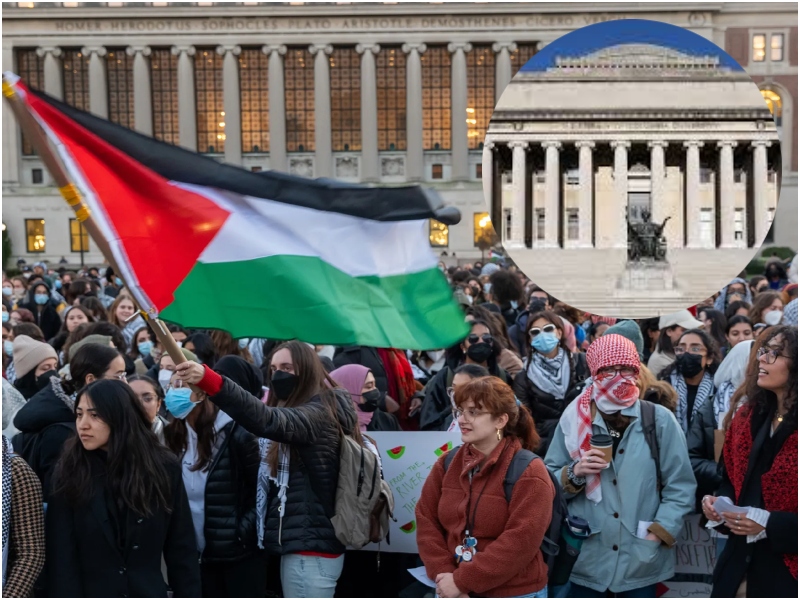A coalition of more than 20 student groups at Columbia University has taken legal action against the institution for what they perceive as unjust suspensions of two student organizations following a protest against Israel’s actions in Gaza.
In November, students staged a demonstration demanding the university’s administration to call for a ceasefire in Gaza and to divest from companies allegedly involved in the conflict.
However, Columbia University suspended two of the student groups involved, citing the event as unauthorized and accusing it of containing threatening rhetoric and intimidation.
The New York Civil Liberties Union and Palestine Legal filed a lawsuit on behalf of the suspended chapters of Students for Justice in Palestine (SJP) and Jewish Voice for Peace (JVP), alongside a Palestinian and a Jewish student.
The lawsuit contends that the suspensions were unlawful and violated state laws governing peaceful protest.
According to the plaintiffs, the suspensions were carried out without prior notice or the opportunity for the accused groups to defend themselves.
They highlight that despite the event being organized by a broad coalition, only the SJP and JVP chapters faced disciplinary action.
The lawsuit also draws attention to a “Special Committee on Campus Safety,” which reportedly imposed the suspensions without prior knowledge from the wider university community.
The plaintiffs argue that the committee’s actions compromised the safety of Palestinian and pro-Palestinian students, instead of upholding it.
Columbia University declined to comment on the ongoing litigation.
However, the university is facing criticism for its handling of another incident involving pro-Palestinian students being attacked with chemicals during a January protest, which the university labeled as “unsanctioned.”
The lawsuit underscores broader concerns about academic freedom and institutional responses to political dissent on college campuses.
It comes amidst a climate where universities are facing increased scrutiny for their handling of contentious issues, including those related to the Israeli-Palestinian conflict.

